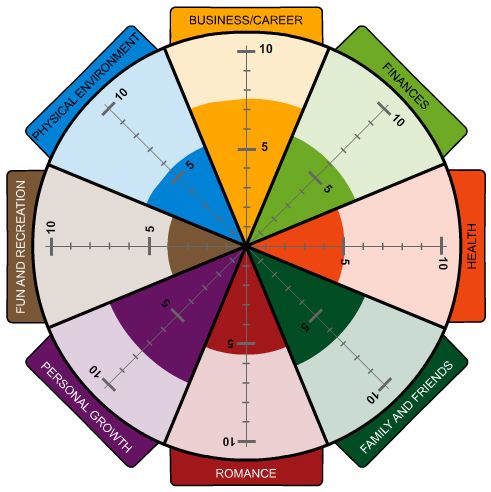Defining Success For Ourselves
We lose control of our destiny when we let others define success for us
Jim Rohn once said, “Formal education will make you a living; self-education will make you a fortune.”
When I started out as an entrepreneur, after graduating from business school, I had very set ideas on how to build a startup and what a writer turned entrepreneur should do.
After all I'd spent God knows how much money getting an MBA to buy into academia’s ideas of success and entrepreneurship.
I had a very clear idea of what I should be and by what age I should be it: I should have a degree by 25, my own house by 27 and a baby by 30.
Not that I ever wanted the baby, but it makes for good writing plus my mother has been asking me when I will give her grandchildren (but that is another story).
The problem with my idea of success was that it was not me: I was and still am a nomad.
I can't tell you where I'll be living next week or next month. I may or may not be in South Africa (I have clothes on 3 different continents) and yet I was envisioning a house in suburbia at 27.
Do you see where this is heading?
When I couldn't fulfill this idea of success I went into self-hate mode and eventually burnt out from doing things I hated but thought I should be doing.
I could barely get out of bed and I stopped writing and performing poetry for 3 years.
It was during this burn out stage that I learned just how fatal it can be for us to take on other people’s ideas of success and how my SHOULDS were killing me and affecting me financially.
Let go of the word “should”
Byron Katie in her book, “Loving what is” points out - our thoughts are what stresses us and cause us the most heart ache.
When people let go of what they believe THEY SHOULD BE DOING, they become significantly less stressed.
When we're calm we're able to tap into our highest potential and manifest miracles.
The way we communicate with ourselves affects our lives because it affects the way the brain works, which affects our emotions and our behavior, which in turn affects the decisions we make today.
How does the brain work?
Don't think about unicorns.
What did you just think about? Unicorns?
Research by Gilbert, Regier, Kay and Ivry states that language affects perception in the right half of the visual field, which affects the way we perceive the world.
The left hemisphere of the brain processes language and the right hemisphere perceives what has been processed.
This is why you thought of unicorns when I mentioned them.
The words we use have many connotations and affect the way we perceive situations and the world.
According to Lera Boroditsky, assistant professor of neuroscience at Stanford University, language affects how we think about events, space, time and objects, which shapes our major life decisions.
The Oxford dictionary defines “should” as a word that's used to indicate duty, proprietary or expediency.
So when we think about success as something we should be doing, we turn that success into a duty, which affects the way we approach success.
If we think we should have a house by 27, we believe that this is a duty and will even be willing to forego all life’s experiences to get this house because to our brain this is something we must do (the word should also means must).
This put unnecessary pressure on us.
The brain processes this as a command (an order) and the decisions we make will be geared towards obeying that command.
Who's to say that going backpacking in Chile wouldn't have gotten us the perfect clients or led to the most awesome creative idea, which would have given us the money to buy the house cash at 29?
But we often find ourselves putting off that vacation in Chile to buy the car we can't afford so we can be seen as successful and please people who don’t really care .
Not only is this a betrayal to ourselves but it's financial slavery because we end up living above our means to satisfy someone else’s idea of successful.
What's the price that we are all going for?
We stress ourselves to get approval from others.
We work ourselves to the bone to fit in and then spend time worrying about how we're perceived by others and it's making us broke.
Is it really worth it?
Is success or wealth just about money?
Is wealth just about money?
Think about it, if we're sick or depressed, we just want to get better, attention shifts to our well-being and feeling better.
We need to define success more holistically in our own words, on our own terms.
Dave Ramsey in his book, “The total money makeover” says, “We buy things we don't need with money we don't have to impress people we don't like.”
We live in a society that often tells us that to be someone and to be considered successful we have to earn more, have more, do more and be more.
Being honest and accepting of what we want can be liberating because it gives us the freedom to just be and when we just are, we can follow our passion and enjoy the journey.
Who would you be if you followed your gut and resolved to do what you really loved?
How would your life change if you lived with passion?
How would living passionately change your finances?
The quick and dirty stress management technique is simple: define success for yourself and reject the status quo.
There's a difference between doing something because you love it and doing something because you have to.
How to define success
There's an awesome coaching tool – the wheel of life – that can help you define success and balance your life.
The wheel has 8 slices:
Business/Career
Finances
Health
Family and Friends
Romance
Personal Growth
Fun and Recreation
Physical Environment
Rank each section from 1 to 10 (1 being the place you need more work on and 10 being where you are doing great).
The wheel helps you understand where you are in your life and where you want to be.
It's important for us to understand where we are in our lives right now, and to decide what we're willing to compromise so we can stop beating ourselves up for not doing certain things.
If there are areas on the wheel that you rate extremely low on, that you want to give more time to, then ask yourself these questions:
i. What's stopping me from making the changes I need to make?
ii. What do I have to change in this moment to have this vision of success?
The next step is to put together an action plan and start taking action to create the life we envision.
Accepting someone’s definition of success is a recipe for midlife crisis.
I can't imagine anything as heartbreaking as waking up 40 years from now and realizing that I've never lived for myself and I don't know what I really want or what moves my soul.
Keep in mind what Paolo Coelho says, “Everyone seems to have a clear idea of how other people should lead their lives, but none about his or her own.”








